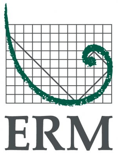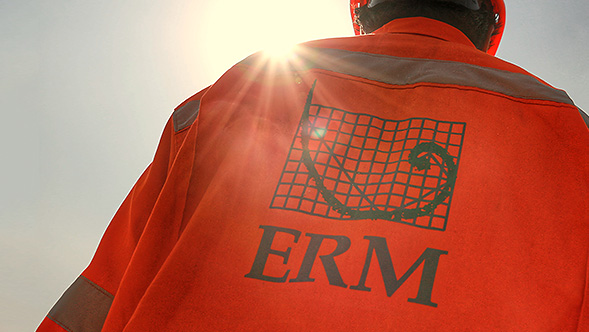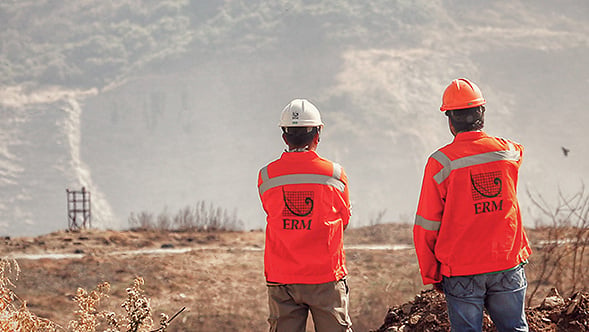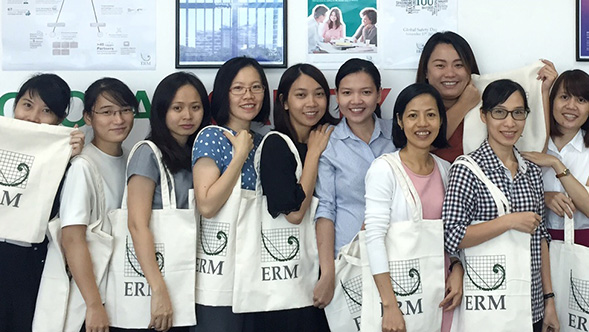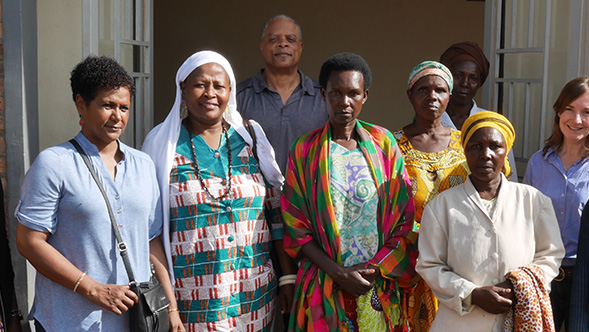Governance
Our commitment
ERM must conduct business with uncompromising honesty and integrity, adhering to laws, regulations, and our written Code of Conduct. Our commitment to combat bribery and corruption is fundamental to how we operate and is embedded into our key systems and programs.
Upon joining the company, all new employees must participate, through the ERM Academy, in interactive, web-based training courses covering international anti-bribery and corruption, insider trading, practical ethics and the regulatory requirements specified by the UK Bribery Act. In FY17, refresher training was provided for all employees who had passed the 2-year milestone since their prior anti-bribery and corruption training.
For more on the location of anti-bribery and corruption-related disclosures in this report, see our UN Global Compact Content Index, which includes details of our reporting on Principle 10 – Anti-Corruption. For an overview of ERM's current ownership and recent acquisitions, visit erm.com.
Human rights

As a global business, we recognize our responsibility to support and respect the protection of internationally proclaimed human rights, as defined by the UN Guiding Principles on Business and Human Rights.
ERM supports international efforts against child and forced labor and has a specific Slavery, Child Labor and Human Trafficking Policy, which we updated last year to align with the UK Modern Slavery Act 2015. Our policy prohibits the use of child or forced labor or involvement by ERM with entities that support prohibited labor practices, including slavery, bonded labor or debt-bondage and other types of coercion or corruption.
In September 2016, ERM released our Slavery and Human Trafficking Statement. It reflects our commitment to international efforts to abolish all forms of modern slavery and sets out the measures to ensure there is no slavery and human trafficking in our business operations and supply chain.
In addition to making a commitment within our own business, we work with our clients globally to improve their human rights practices. Our social and health consulting services teams identify and provide advice on labor, supply chain management, land access and indigenous rights issues.
Sabine Hoefnagel, Global Director – Strategy, London, UK

Human rights roadmap for consumer goods company
ERM worked with a global consumer goods company to develop a human rights risk screening and roadmap. Our approach used risk criteria to assess and prioritize high-risk commodities and geographies important to the client’s business. We then prioritized where further human rights due diligence activities were needed most and recommended short-, medium- and long-term actions. We provided the client with an innovative, systematic and replicable approach to assess the effectiveness of management controls in place to address human rights issues and focus resources. In addition, the process provided fresh insight into current business practices, including barriers and enablers to improving human rights performance in the supply chain.
Responsible sourcing policy and supplier assessment
ERM is working with a global commodity trader to implement their responsible sourcing policy for goods sourced from areas known to have significant human rights issues. We developed a best practice approach to identify and assess human rights performance in high risk geographies enabling our client to identify risks, prioritize their due diligence activities and respond to stakeholders.
Mondi worked with ERM in South Africa to conduct a pilot project focused on its South African forestry operations. The pilot aimed to identify and measure the local impacts of Mondi’s social investments. Key aspects of the pilot included engaging with local government, nongovernmental organization partners, and community beneficiaries to better understand the outcomes and sharing data on the progress of local projects.
This project was published in March 2017 as a case study in the Forest Products Sector Guide to WBCSD's Social Capital Protocol available on the WBCSD website.
Managing risks
We exercise judgment with respect to clients and third parties we engage with and the types of work we undertake. We will not work with clients or subcontractors who do not share our commitment to high ethical standards; we have turned down project opportunities because of concerns involving human rights violations and other ethical issues.
We scrutinize opportunities and projects carefully before proceeding and reserve the right to withdraw from a project if business conduct and ethics concerns arise.
We apply similar rigor to the activities of the ERM Foundation and are careful to avoid any potential ethical or compliance concerns associated with those organizations that we support.
Our systems enable ERM employees to confirm quickly that third parties are not on government watch lists for corruption, bribery or human rights violations. We have committed to following the trade sanctions established by the European Union and the United States, as well as the United Nations.

Contractor management
ERM's global Contractor Management Program (CMP) helps us evaluate and pre-qualify contractors to ensure that they adhere to the key elements of our Code of Conduct, including those pertaining to human rights, labor practices, anti-bribery and corruption, child and forced labor, as well as a wide range of other important issues such as ERM's health and safety and insurance requirements. Where key contractors do not meet our criteria, we can work with them to improve their processes and performance.
The CMP is being implemented progressively around the world, resulting in a more consistent approach for mandating contractors and suppliers to adhere to our policies and requirements and also track their compliance.
To date, CMP has been implemented in the following ERM Business Units:
- Australia and New Zealand;
- Canada;
- Hong Kong;
- Malaysia;
- Mexico;
- Sub-Saharan Africa;
- United Kingdom and Ireland;
- United States; and
- Western Europe and North Africa.
Data security
Our first layer of protection is our people. ERM staff members understand their responsibilities in protecting both our data and information and that of our clients. We take a risk-based approach with the level of protection appropriate for the sensitivity of the information involved.

Data stored on ERM computers and systems are secured by multiple methods to protect servers and computers and ensure data are protected in transit. In addition, data stored on ERM network servers are backed up regularly to ensure that they can be recovered in the event of a disaster. Redundancy through multiple components, locations and network connections help ensure high availability.
Technology provides our employees with additional secured and authenticated access to ERM’s data when out of ERM offices.
KPI HIGHLIGHT
See FY17 performance-
FY17 targets
Zero fines or nonmonetary sanctions for material noncompliance with laws or regulations.
Results
Zero fines or nonmonetary sanctions for material noncompliance with laws or regulations.
-
100% completion of ERM mandatory new starter business conduct and ethics training in required timeframe.94.6% of new starters completed ERM mandatory business conduct and ethics training in required timeframe.
